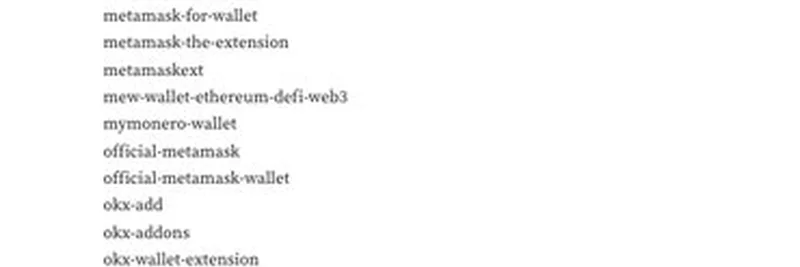Hey there, crypto enthusiasts! If you’re using Firefox to manage your digital wallets, you might want to pay close attention. A massive scam called FoxyWallet has been uncovered, involving over 40 fake Firefox extensions designed to steal your cryptocurrency wallet credentials. This alert comes straight from the cybersecurity experts at SlowMist, and it’s a wake-up call for anyone in the blockchain community. Let’s break it down and figure out how to keep your assets safe!
What’s the FoxyWallet Scam All About?
Imagine downloading what you think is a legit extension for your MetaMask or Coinbase Wallet, only to find out it’s a cleverly disguised thief. That’s the heart of the FoxyWallet campaign. Since at least April 2025, attackers have been uploading these fake extensions to the Mozilla Add-ons store, targeting popular wallets like MetaMask, Trust Wallet, Phantom, and more. The scam has been active for months, with new malicious extensions popping up as recently as last week.
These extensions are sneaky. They clone the real codebases of trusted wallets, adding malicious logic to steal your credentials. Once installed, they quietly send your wallet secrets and even your IP address to servers controlled by the attackers. Yikes! Some of these fakes are still live on the store, making it a persistent threat.
How Do They Trick You?
The bad guys are pros at building trust. They inflate reviews with hundreds of fake 5-star ratings to make the extensions look legit. They also mimic the branding—logos, names, you name it—of real wallet tools. In some cases, they even use open-source code from official extensions, tweaking it with their own malicious twists. It’s low effort for them but high risk for you if you don’t spot the difference!
Who’s Behind This?
While it’s not 100% confirmed, clues point to a Russian-speaking threat actor. Russian comments in the code and metadata from a command-and-control server suggest a link to this group. This aligns with what we know about sophisticated cybercrime networks, which often operate in underground forums to refine their tactics.
How to Protect Yourself
Don’t panic—there are steps you can take to stay safe! Here’s what the experts recommend:
- Verify Publishers: Only install extensions from trusted sources. Don’t trust high ratings alone—check the publisher’s identity.
- Treat Extensions Like Software: Vet them carefully, just like you would any app. Think of them as potential security risks.
- Use an Allowlist: Restrict installations to pre-approved extensions only.
- Monitor Continuously: Extensions can auto-update with new malicious code, so keep an eye on their behavior.
Why This Matters for Meme Token Fans
At Meme Insider, we’re all about keeping you in the loop on blockchain tech, including meme tokens. Many of you use wallets to trade or hold these fun assets, so this scam hits close to home. Losing your wallet credentials could mean losing your entire meme token collection—think Dogecoin or Shiba Inu—in an instant. Staying vigilant is key to enjoying the meme token craze safely.
The Bigger Picture
This isn’t just a one-off scam. It’s part of a growing trend where cybercriminals target browser extensions to exploit crypto users. With the blockchain space booming, attackers are getting more creative. Tools like those from Koi Security, mentioned in related reports, are stepping up to help govern third-party code and reduce risks. It’s a reminder that security should be a top priority for all of us in this space.
So, take a moment to check your Firefox extensions today—July 3, 2025, at 10:39 AM +07, to be exact! Let us know in the comments if you’ve spotted any suspicious add-ons, and stay tuned to Meme Insider for more updates on keeping your crypto safe. Together, we can outsmart these scammers!



